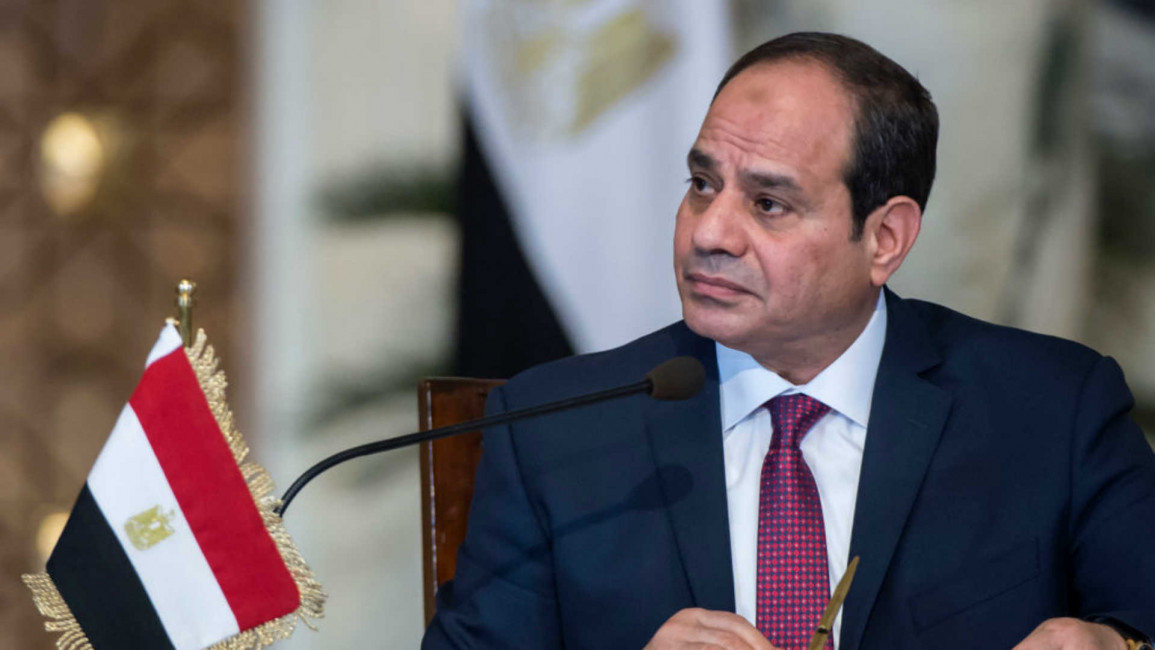Egypt's Sisi to attend Libya peace conference in Italy
MENA said Sisi is to join a two-day conference in Sicily hosted by Italy meant to find ways to stabilise the situation in war-torn Libya.
Sisi's visit will be closely watched in Rome as it is his first to Italy since the disappearance of Italian student Giulio Regeni in Cairo in 2016, which has strained ties between Egypt and Italy.
A summit in Paris in May had seen the Tripoli-based Government of National Accord (GNA) and eastern Libya strongman Khalifa Haftar agree to hold national polls on 10 December, but that date has fallen by the wayside.
Acknowledging the chaotic political situation since dictator Muammar Gaddafi was deposed in 2011, the UN on Thursday conceded elections will not be viable before at least the spring of 2019.
Read more: Key players of the Libya crisis
A question mark hangs over Haftar's crucial presence in Palermo, with Rome on Sunday denying an official statement from the Libyan militia leader that Italian Prime Minister Giuseppe Conte paid a lightning visit to his Benghazi headquarters.
A source close to the Italian government could not confirm if the two had been in contact by telephone.
Analysts say the Sicily summit risks being compromised not only by tensions between Libyan factions, but also the competing agendas of foreign powers.
 |
According to diplomats and analysts, Russia, France, Egypt and the UAE support Haftar, while Turkey and Qatar have thrown their weight behind rivals to the eastern strongman, especially Islamist groups. |  |
Just as in May, the key Libyan invitees are Haftar, the eastern parliament's speaker Aguila Salah, GNA head Fayez al-Sarraj, and Khaled al-Mechri, speaker of a Tripoli-based upper chamber.
Sarraj, in an interview with AFP, urged the international community on Thursday to find a "common vision" for the future of his chaos-hit North African nation.
The GNA said it will use the Palermo talks to lobby for security reforms that unify the army, a constitutionally rooted electoral process, economic reform and an end to "parallel institutions".
|
The US, Arab countries and European nations will all send representatives to the Tuesday talks, after a dinner set for Monday.
For Rome's populist government, a top priority is stemming the flow of migrants who exploit Libya's security vacuum in their quest to reach European shores, often via Italy.
"The Palermo conference is a fundamental step in the goal of stabilising Libya and for the security of the entire Mediterranean", Conte said last week.
UN envoy Ghassan Salame told the Security Council on Thursday that a national conference in early 2019 would be organised to provide "a platform" for Libyans to spell out their vision for the future.
But diplomatic wrangling between Italy and France hangs over next week's summit.
In September, Italy's defence minister and parliamentary speaker both partly blamed France for Libya's security crisis, which continues to simmer some seven years after the NATO-backed uprising toppled Kadhafi.
The Italian swipes came as Tripoli was plagued by militia clashes that killed at least 117 people and wounded more than 400 between late August and late September.
Rome and Paris have for months been at loggerheads over Libya's election timetable. While France repeatedly endorsed the December date, Italy opposed it.
Italy has not been alone in pushing for elections to be delayed - the 10 December date was also viewed sceptically by Washington and Moscow.
One Italian diplomatic source said that no definitive poll date should be set at the summit and it is "not sure that there will be a final document" after the talks.
According to diplomats and analysts, Russia, France, Egypt and the UAE support Haftar, while Turkey and Qatar have thrown their weight behind rivals to the eastern militia leader, especially Islamist groups.
Follow us on Twitter: @The_NewArab



